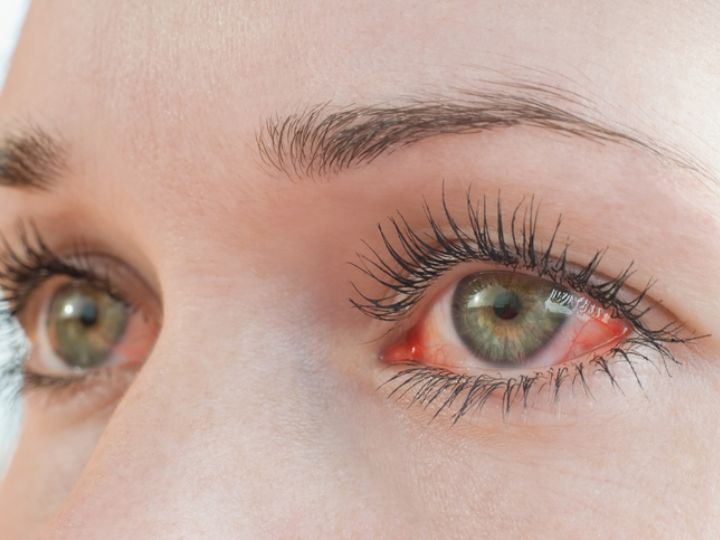All Categories
Featured
We commonly become aware of protecting our skin from dangerous ultraviolet (UV) rays, however did you recognize that UV exposure can likewise dramatically influence your eye health and wellness? Whether you're outdoors on a bright day and even throughout over cast weather condition, your eyes are continuously exposed to UV radiation. Extended direct exposure can enhance the risk of various eye conditions, some of which might bring about irreversible vision damage. Understanding the results of UV rays on your eyes and how to shield them is important for preserving long-lasting eye health.
Kinds Of UV Rays. UV rays are identified right into three types:
UVA Rays: These rays penetrate deep into the skin and can likewise impact the inner layers of the eyes. UVB Rays: These rays mostly trigger damage to the skin's surface area yet can additionally hurt the cornea and lens of the eye. UVC Rays: While these are one of the most unsafe, they are mostly absorbed by the Earth's atmosphere and don't get to the surface area. Both UVA and UVB rays are dangerous to your eyes, and with time, exposure can bring about significant eye conditions.
Short-Term Effects of UV Direct Exposure. Even brief exposure to extreme UV rays can lead to prompt eye damages. An usual temporary problem is photokeratitis, often described as "sunburn of the eye." Signs and symptoms of photokeratitis include:
Inflammation and irritability. Level of sensitivity to light. Tearing or watery eyes. A gritty sensation, as if something is stuck in your eye. While the signs and symptoms of photokeratitis are short-term and normally deal with within a day or 2, repeated occurrences can have collective impacts on your vision.
Long-Term Results of UV Direct Exposure. Persistent UV direct exposure can add to a number of severe eye conditions, including:
Cataracts: In time, UV rays can trigger clouding of the eye's lens, leading to cataracts, among the leading causes of blindness worldwide.
Macular Degeneration: Prolonged UV direct exposure can harm the retina, specifically the macula, bring about age-related macular degeneration (AMD), which affects central vision.
Pterygium: Also understood as "internet user's eye," this condition entails the development of a fleshy tissue on the white part of the eye, which can prolong over the cornea and effect vision.
Skin Cancer Around the Eyes: The delicate skin around the eyes is at risk to UV radiation, enhancing the danger of skin cancer cells, such as basic cell carcinoma.
Pinguecula: UV direct exposure can likewise cause yellow-colored deposits on the conjunctiva, which can create irritation and pain.
How to Secure Your Eyes from UV Rays. Use Sunglasses with UV Defense: Constantly select sunglasses identified as obstructing 100% of UVA and UVB rays. Wrap-around styles provide added security by blocking UV rays from the sides.

Utilize a Wide-Brimmed Hat: Hats with a large brim can decrease UV direct exposure by approximately 50%, offering extra coverage for your eyes and face.
Stay Clear Of Top Sun Hours: UV rays are greatest between 10 a.m. and 4 p.m. Restricting your exterior activities throughout these hours can aid reduce exposure.
Do Not Forget Kids: Kid's eyes are extra conscious UV rays, so ensure they wear sunglasses and hats when outdoors.
Use UV-Blocking Call Lenses: If you use calls, ask your eye care provider concerning UV-blocking lenses for included defense.
Remain Protected Year-Round: UV damage isn't limited to summertime; rays can mirror off surfaces like water, sand, and snow, making eye protection necessary all year.
Verdict. Protecting your eyes from UV rays is vital to maintaining your vision and total eye health. The impacts of UV direct exposure may not always be instant, but they can gather over time, leading to major conditions. By taking basic safety measures like wearing UV-protective sunglasses, limiting exposure during height hours, and frequently visiting an eye treatment professional, you can protect your eyes from the unsafe impacts of UV radiation. Keep in mind, your eyes are irreplaceable-- take actions to secure them today.
Latest Posts
Find Brake Repair & More: Full Services Guide from Montclare Auto Repair
Reasons Regular Car Maintenance at Montclare Auto Repair Reduces Costs
Learn About Outstanding Car Repair Services offered by Montclare Auto Repair – Drive with Confidence
More
Latest Posts
Find Brake Repair & More: Full Services Guide from Montclare Auto Repair
Reasons Regular Car Maintenance at Montclare Auto Repair Reduces Costs
Learn About Outstanding Car Repair Services offered by Montclare Auto Repair – Drive with Confidence